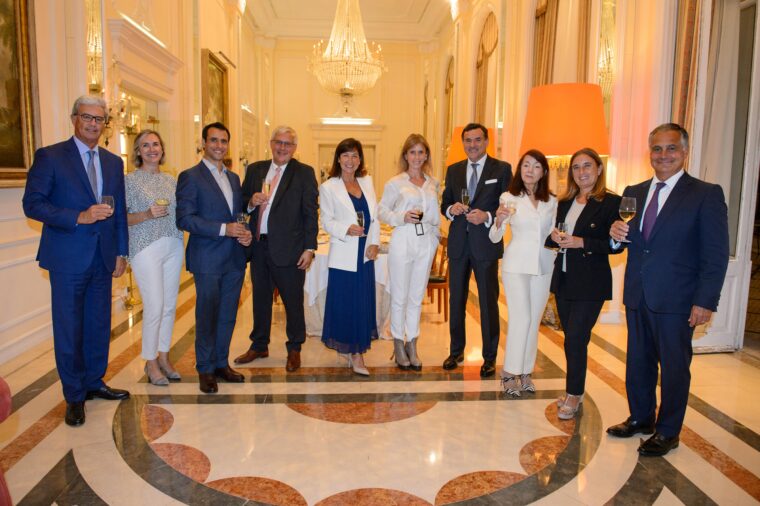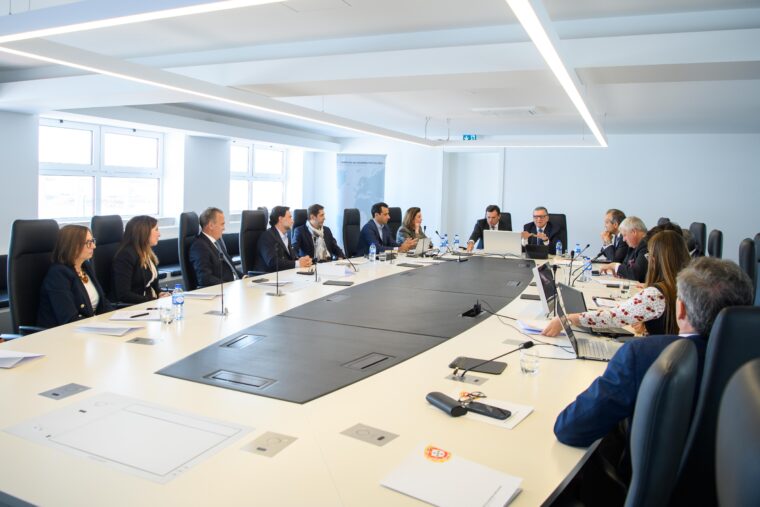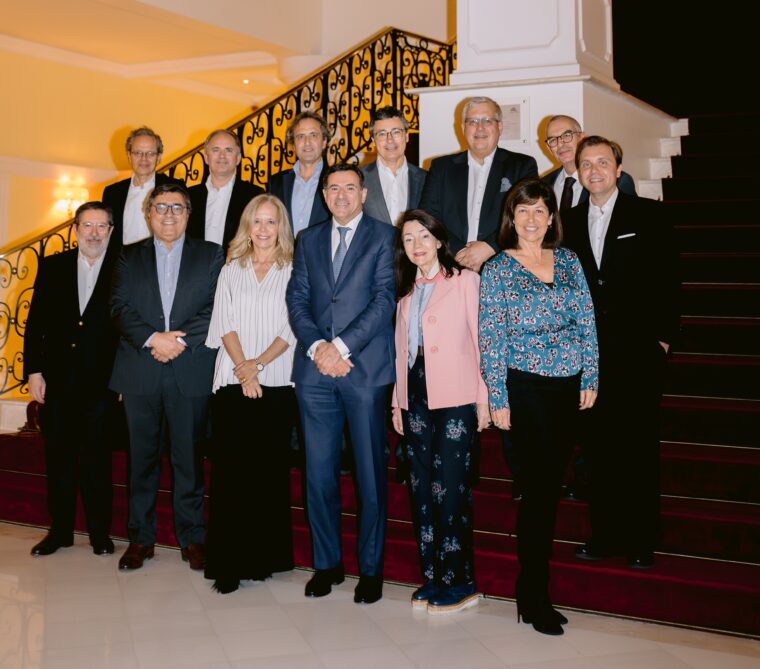The Portuguese Diaspora Council held its Annual Meeting on December 19th at Nova SBE and December 20th at the Pestana Cidadela Cascais Hotel.
The first day of the event was dedicated to the Internal Meeting of the Council, gathering the Councillors and the members of the Advisory Board. During this meeting, a review of the activities carried out in 2024 was presented, and strategic objectives for the following year were defined.
Among the central themes of the meeting were projects and initiatives promoted by the Regional Hubs and Competence Centres, as well as the presentation of the Communication Plan of the Portuguese Diaspora Council for 2025, developed by the Young Councillors in collaboration with the Executive Team.
Also presented was an update on the Young Diaspora, since its launch in July 2024 during the EurAfrican Forum, along with the plan for 2025, which includes a commitment to continue expanding the program with the inclusion of up to 15 new Young Councillors. During the meeting, collaboration with the Rede Global da Diáspora and the Conselho das Comunidades Portuguesas was also discussed, highlighting the importance of these partnerships in achieving the Council’s objectives.
At the end of the day, a Collaboration Protocol was signed between the Portuguese Diaspora Council and the Erasmus+ Diaspora project of the Fundação António Pargana. This milestone was attended by Bernardo Ivo Cruz, Executive Director of the Foundation, and Miguel Guedes, Board Member. The day concluded with a dinner at the Azure Restaurant, at Nova SBE.
The second day focused on the discussion of “Soft Power and Global Economic and Trade Relations” and was attended by around 220 guests, including political leaders, over a hundred Councillors, and prominent business and institutional figures. The discussion revolved around how collaboration in creating and developing valuable partnerships between the public and private sectors promotes greater growth and prosperity.
Marcelo Rebelo de Sousa, President of the Portuguese Republic and Honorary President of the Portuguese Diaspora Council, recalled that “The Portuguese Diaspora is inseparable from our history and our soft power. We are Portuguese, we are universal, and for this reason, the Diaspora is an essential strategic factor for the country, with the artistic, cultural, scientific, and technological impact it promotes.” Looking towards the future, he further stated that “One of the most notable capabilities of the Portuguese people is our ability to rejuvenate, and this is the expectation for the Portuguese Diaspora Council as well, which in 2025 will have a more ambitious agenda with more initiatives to continue the great work it has been doing.”
Paulo Rangel, Minister of State and Foreign Affairs and Honorary Vice-President of the Portuguese Diaspora Council, emphasized that “Diasporas change the lives of their own countries because today, being inside or outside is the same thing, thanks to our ability to move and connect.” He argued that “What is asked of the Portuguese Diaspora is the recognition of this new situation in which, fundamentally, we are all in a position of equality with an opportunity to attract investment, promote trade exchanges, and boost our economic performance.”
“Portugal is one of the three reference countries in terms of public finance balance,” said Mário Centeno. The Governor of the Bank of Portugal also clarified that “All sectors must be partners to ensure that there is trust, the basis of investment. The public and private sectors are not a dichotomy, and the best public-private partnership is for the state to ensure stability and predictability so the private sector can do what it is supposed to do,” he concluded.
António Calçada de Sá, President of the Board of the Portuguese Diaspora Council, stated: “This Annual Meeting was designed to align with the activities of the Portuguese Diaspora Council over the past years, valuing the debate on soft power, collective efforts for improving Portugal’s image and prestige, based on strategic partnerships worldwide.” He added, “We were 22, now we are 309. Driven by the regional networks and now also with the important contribution of the new 16 young Councillors, the Portuguese Diaspora Council has grown in many geographies, always committed to its great mission of working for and on behalf of Portugal.”
José Manuel Durão Barroso, President of the General Assembly of the Portuguese Diaspora Council, argued that “Abroad, Portugal is viewed with sympathy but also with some condescension. That is why it is important to have Portuguese people in prominent positions abroad. This helps to reduce our inferiority complex.” He reiterated that “Soft power is a lever for our interests, and mobilizing this Diaspora is crucial for our rebranding and our global dimension.”
The debate panel at the Annual Meeting brought together João Rui Ferreira, Secretary of State for the Economy; Helena Malcata, Director-General for External Policy at the Ministry of Foreign Affairs; and Carlos Leiria Pinto, Advisor to the Vice President for Europe and Latin America at the International Finance Corporation (IFC), to discuss “Value Partnerships – How Can the Public and Private Sectors Work Together?”
José Ivo, a Board Member of the Diaspora Council and Honorary Consul of Portugal in Houston, presented the U.S. Friends of Portuguese Universities, an entity he leads, with the primary mission of boosting international philanthropy by facilitating donations from American citizens and organizations aimed at improving the quality of teaching programs, projects, and infrastructure at several Portuguese universities.
The Annual Meeting program also included an intervention by Ronald DePinho, a Member of the Diaspora Council and Former President of the MD Anderson Cancer Center, on the Portugal-USA Cancer Initiative, a scientific collaboration project between Portugal and the United States focused on cancer research. The project, which includes partnerships between 22 Portuguese and American universities, has already allowed for faculty visits to promote scientific exchange and innovative collaborations between the two countries. It also includes intensive training for young researchers with world-renowned experts and plans for a sabbatical program allowing Portuguese students to participate in cutting-edge research in U.S. laboratories.
Marcelo Rebelo de Sousa delivered the closing speech of the event and presented membership cards to the new Councillors and Young Councillors.
In 2024, committed to its continued and sustained expansion into the future, the Portuguese Diaspora Council welcomed 86 new Councillors and 16 Young Councillors.







